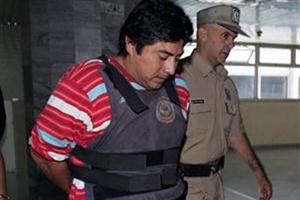A report on Argentina’s increasing role as a drug transit nation illustrates how the country’s drug trade operates, and the role of foreigners in facilitating local trafficking and transnational operations.
According to experts and officials consulted by the Associated Press, seizures made in other countries and at sea indicate that a growing quantity of drugs is passing through Argentina, and that 2014 figures could be the highest yet.
Although the Argentine government does not release drug seizure figures, officials who spoke on the condition of anonymity told the Associated Press that 6.1 tons of cocaine was seized in the country in 2013, compared to 4.9 tons in 2012. An unidentified US antidrug official said that in total an estimated 70 to 110 tons of drugs pass through Argentina each year.
One judge told the Associated Press that most of the cocaine enters the country in the province of Salta, and that some of the drugs set aside for Argentina’s domestic market are trafficked by medium-sized groups led by Peruvians and Paraguayans.
According to the report, Argentina has also seen an increase in coca base entering the country, which is then processed into cocaine and sent abroad, mainly to European markets. Individuals from a number of European countries — including Italy, Spain, Serbia, Croatia, and Russia — have been detained in conjunction with anti-drug operations.
InSight Crime Analysis
The reported involvement of Peruvians and Paraguayans in Argentina’s domestic drug trade, and the arrests of Europeans from a number of different countries, underscores Argentina’s status as an international drug trafficking hub. Mexico’s Sinaloa Cartel has been linked to cocaine and precursor chemical trafficking in the country, as has Colombia’s Oficina de Envigado. Italy’s ‘Ndrangheta mafia is also believed to maintain a presence in Argentina.
SEE ALSO: Coverage of Argentina
The report attributes Argentina’s increasing role as a drug transit nation to a variety of factors, including the country’s porous border with Bolivia, the existence of an extensive export infrastructure with large quantities of products moving to Europe, and interdiction efforts elsewhere in Latin America that have pushed drug trafficking south.
In addition, official corruption has likely played a significant role in spurring Argentina’s drug problem. A recent precursor trafficking scandal in which the former anti-drug chief was alleged to have facilitated the import of large quantities of ephedrine — a substance used to make methamphetamine — implicates a number of officials close to the administration of President Cristina Fernandez de Kirchner. High-level officials, including the president, have also been implicated in money laundering schemes, although there are no known investigations that reach the presidency.

